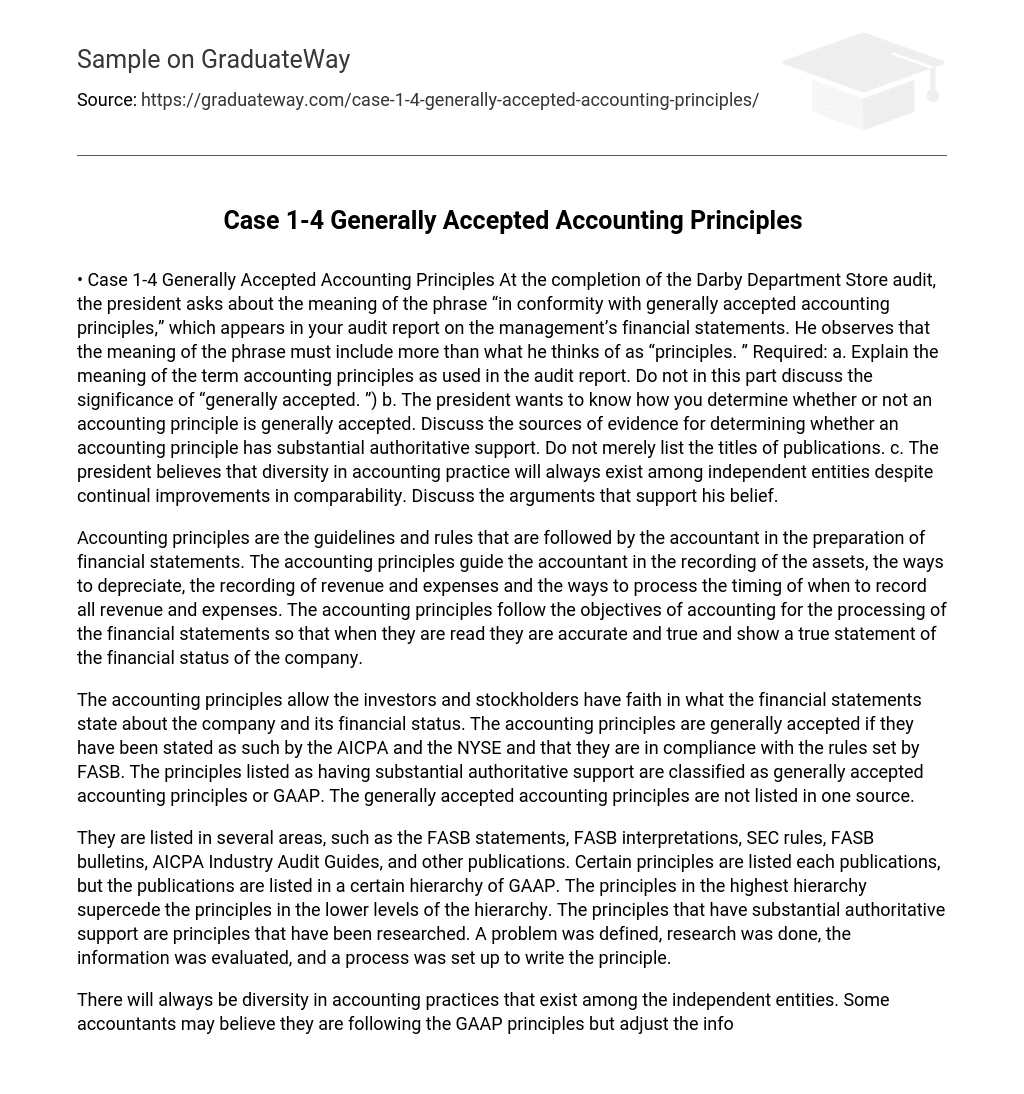Accounting principles are the guidelines and rules that are followed by the accountant in the preparation of financial statements. The accounting principles guide the accountant in the recording of the assets, the ways to depreciate, the recording of revenue and expenses and the ways to process the timing of when to record all revenue and expenses. The accounting principles follow the objectives of accounting for the processing of the financial statements so that when they are read they are accurate and true and show a true statement of the financial status of the company.
The accounting principles allow the investors and stockholders have faith in what the financial statements state about the company and its financial status. The accounting principles are generally accepted if they have been stated as such by the AICPA and the NYSE and that they are in compliance with the rules set by FASB. The principles listed as having substantial authoritative support are classified as generally accepted accounting principles or GAAP. The generally accepted accounting principles are not listed in one source.
They are listed in several areas, such as the FASB statements, FASB interpretations, SEC rules, FASB bulletins, AICPA Industry Audit Guides, and other publications. Certain principles are listed each publications, but the publications are listed in a certain hierarchy of GAAP. The principles in the highest hierarchy supercede the principles in the lower levels of the hierarchy. The principles that have substantial authoritative support are principles that have been researched. A problem was defined, research was done, the information was evaluated, and a process was set up to write the principle.
There will always be diversity in accounting practices that exist among the independent entities. Some accountants may believe they are following the GAAP principles but adjust the information to the need of the company. Some of the differences can come because of the management putting pressure on the accountants. There is also diversity because each entity caters to a different type of company. For example, retailers and manufacturers will have different procedures to follow. There is also new principles being developed on a regular basis as time moves on.





